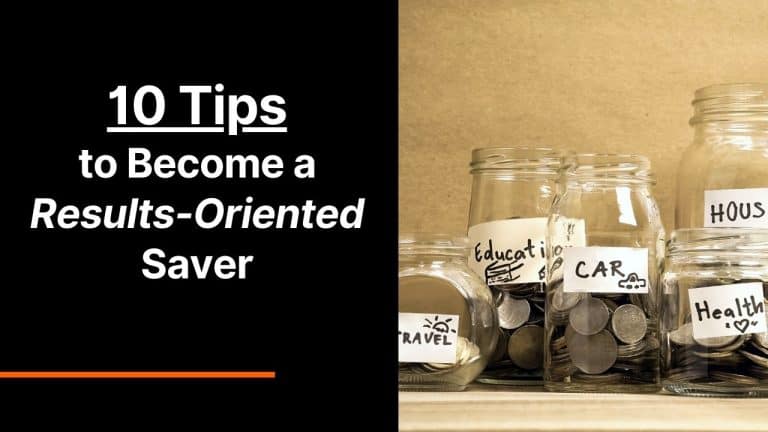12 Personal Finance Principles to Follow
A lot of people think personal finance is a subject only for the rich and privileged.
But, money’s something we all need to be thinking about.
Taking care of your finances will help you sleep better at night, keep more money in your pocket, and give you peace of mind.
So here are 12 personal finance principles everyone should know. You’ll learn everything from getting out of debt to saving for retirement, and more so read on!
Personal Finance Principles
1. Determine Your Goals
The first personal finance principle is to determine your goals.
What are you trying to achieve? Setting and having attainable goals will make it much easier to manage your money and save up for important things.
Whether it’s funding your children’s college education or buying a new car, having clear goals in mind will keep you motivated.
2. Have a Budget!
You’ve heard it before, and you’ll hear it again: having a budget will make you a fiscally responsible adult!
And following this personal finance principle will set you up for success with the rest. It’s probably the number one way to track your
Once you have a budget in place, it becomes easier to determine how much money you can set aside for your savings and investing goals.
3. Track Your Spending
If you’ve ever sat down and added up all of your expenses, then you know how easy it is to see where the money goes.
Tracking your spending gives you a birdseye view of your budget and allows you to make the necessary changes.
Plus, there are a lot of free apps that can help you track your spending for yourself. My favorite and free tracking apps are Mint and Personal Capital. I normally log in a few times a week to see where I’m at.
4. Start a Side Hustle
If you want to be a financially responsible adult AND save up money to invest in your future, then you should definitely take on a side hustle!
Whether It’s:
- Selling your stuff on eBay
- Working as a rideshare driver
- Delivering pizza or grocerries
- Or doing freelance work in your spare time
Having another source of
This additional
5. Pay Off Your Debt
One of the worst habits many Americans have developed is buying things they can’t afford.
Most people know they shouldn’t be taking out a loan to buy a car or a house, but many do it anyway.
And if you already have any high-interest debts, such as a payday loan or a credit card balance, then you need to come up with a plan to pay them off.
Even if your interest rate is low, the best thing you can do is pay off your loans as soon as you can.
6. Save Up For Retirement!
If you just started your working career and don’t have a retirement fund that’s fully funded, then consider yourself lucky because you’ve got lots of time to save up.
Out of the 12 personal finance principles, your future self will thank you the most for saving up some money.
If you’re in your twenties or thirties, you should start thinking about putting money into your 401k and IRA accounts.
While it’s never too early to start saving for retirement, the earlier you can get started, the better off you’ll be.
7. Put Money In a Coffee Can
Don’t laugh! Literally, save up all of your change and put them in a coffee can.
Anytime you have some extra change in your pockets, dump it in the can.
And believe it or not, this method of saving is much more effective than you think! It’ll add up pretty quickly over time. And will allow you to buy groceries without having to worry about how much cash you’re spending.
But I try and invest any spare change I have and save up. That way, it keeps providing and producing
8. Don’t Spend Money On Things You Don’t Need!
Again, I know it’s simple, but spending money on things you don’t need is one of the worst ways to waste your money.
If you want to be smart with your cash, then don’t spend it unless it’ll benefit you in some way. Ask yourself this question: if you don’t buy this thing, would your life be any different?
If the answer is no, then this personal finance principle says you probably shouldn’t purchase it.
9. Save Money By Eating In!
Eating in can save you a ton of money!
And it will allow you to eat and stay much healthier when you cook and prepare your own food. You can stock up on healthy foods like chicken breasts, eggs, frozen vegetables, and other essentials.
And the next time when you want to pig out on some pizza, tacos, burgers, or whatever food you love, try making it at home.
It’ll come out a lot more fresh and will most likely be healthier.
Or try meal prepping ahead of time so you always have food that’s ready to eat when you’re hungry!
10. Make a Grocery List!
Another way to be smart with your money is by making a grocery list.
Before you venture out to the supermarket, always make sure you plan what you need and don’t go overboard. And NEVER go grocery shopping when you’re hungry.
Or you’ll be picking up random items you never needed.
And there’s nothing worse than walking up and down every aisle looking for something to put in your cart when all you wanted was cereal.
11. Avoid Credit Card Debt
If you want to be a financially responsible adult, avoid credit cards at all costs.
If you don’t have the money in your bank account to make a purchase, then you shouldn’t be spending it! It’s that simple.
Because the debt from credit card usage is one of the leading causes of personal bankruptcy and should be avoided at all costs.
And if you didn’t pay attention to any of the other personal finance principles I’ve mentioned so far, remember this one.
It could save you from going bankrupt. And finally…
12. Don’t Fall For Marketing Tricks!
Most marketing is completely deceptive.
They’ll advertise a certain product as being the most amazing thing in the world so you’ll buy it. And when you buy it, the quality is usually sub-par.
This is done to get you hooked on something that isn’t all that great so that they can get more of your money.
Purchasing anything after it has been advertised to you is throwing your money away. Be smart with your cash and only purchase things that are truly worth it!
Summary – Personal Finance Principles
It’s important to know frugal living doesn’t mean being poor or having nothing.
You don’t have to miss out on every event or stop buying things you love, like coffee.
It means spending less money than you earn and saving, so you have more money for life and the things you really want. That’s what all these personal finance principles are about.
Personal Finance Priciples To Remember
- Spend less than you earn
- Save at least 10% of what you make
- Live frugally so you can spend on the things that matter
- Plan ahead for
expenses and save extra just in case it’s needed
These four personal finance principles cover the basics and most of what was mentioned above.
And if you do all of these, there’s no doubt that you’ll become a more financially responsible adult.
But I at least hope this article helped you understand the importance of developing financially responsible habits. Along with seeing how they can help you achieve your savings goals.






